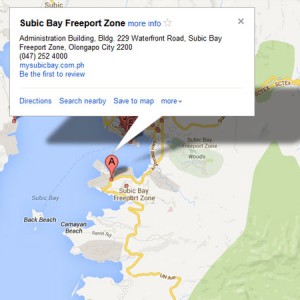
Although it is possible for the free port and the US Navy to coexist, the US military should abide by the provisions of the Constitution, the Visiting Forces Agreement and Republic Act 7227, or the Bases Conversion and Development Act of 1992, which created the SBMA and the Subic Bay Freeport, said SBMA Chairman Roberto Garcia.
Coexist
“I believe that we could coexist, but they will have to work within the charter of SBMA, which is to promote this as an investment site. The [US Navy] will be like locators. We can make a [memorandum of agreement] with them, and they pay commercial rates for their stay here,” Garcia said.
Earlier, American Defense Secretary Chuck Hagel allayed fears that the US policy of increasing its political, economic and security engagement with the Asia-Pacific would revive permanent US basing arrangements in the Philippines.
Hagel, who visited the country last month, said he and President Aquino discussed expanding the US military’s presence in the Philippines as the country seeks US support to defend its territories in the West Philippine Sea.
The Philippines and the US are moving closer to concluding a pact that would expand US military presence here.
Defense Secretary Voltaire Gazmin has said that US troops and vessels would gain access not only to Subic but also to other military facilities in the country.
Garcia said while the SBMA defers to the national government because the issue involves national interest, the SBMA cannot subsidize the US Navy’s presence here.
Bankrupt
“SBMA will go bankrupt [if we do],” he said.
He said a greater presence of the US Navy would use up areas that could be leased out to other locators, and the traffic of ships in the Subic port would also take a huge toll on its facilities.
Garcia said the US Navy is not paying the SBMA a single centavo for its use of the Subic port, in accordance with the provisions of the VFA.
Asked how a greater presence of the US Navy will affect locators and the future business prospects of this economic zone, Garcia said: “For the ones who can supply [the US Navy], it’s a boon. For those who are not [going to do business with them], as long as their operations are not interfering with the usual [conduct of business], I suppose it would be fine.”
But Garcia made it clear that the US Navy will not have control of the Subic port or call the shots within the economic zone, except in areas designated to them, just like any other locator.
“The US Navy cannot close [parts of] the free port because of their military’s presence, or restrict access,” he said.